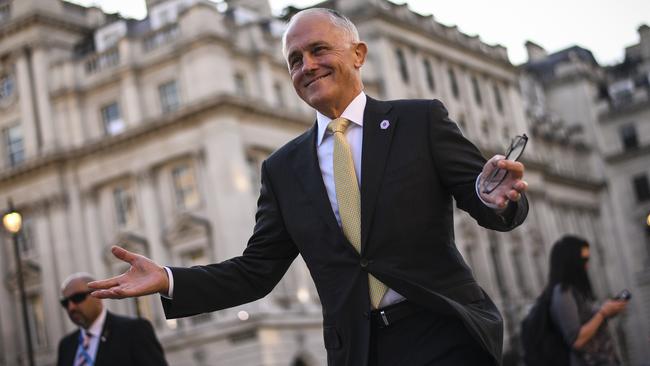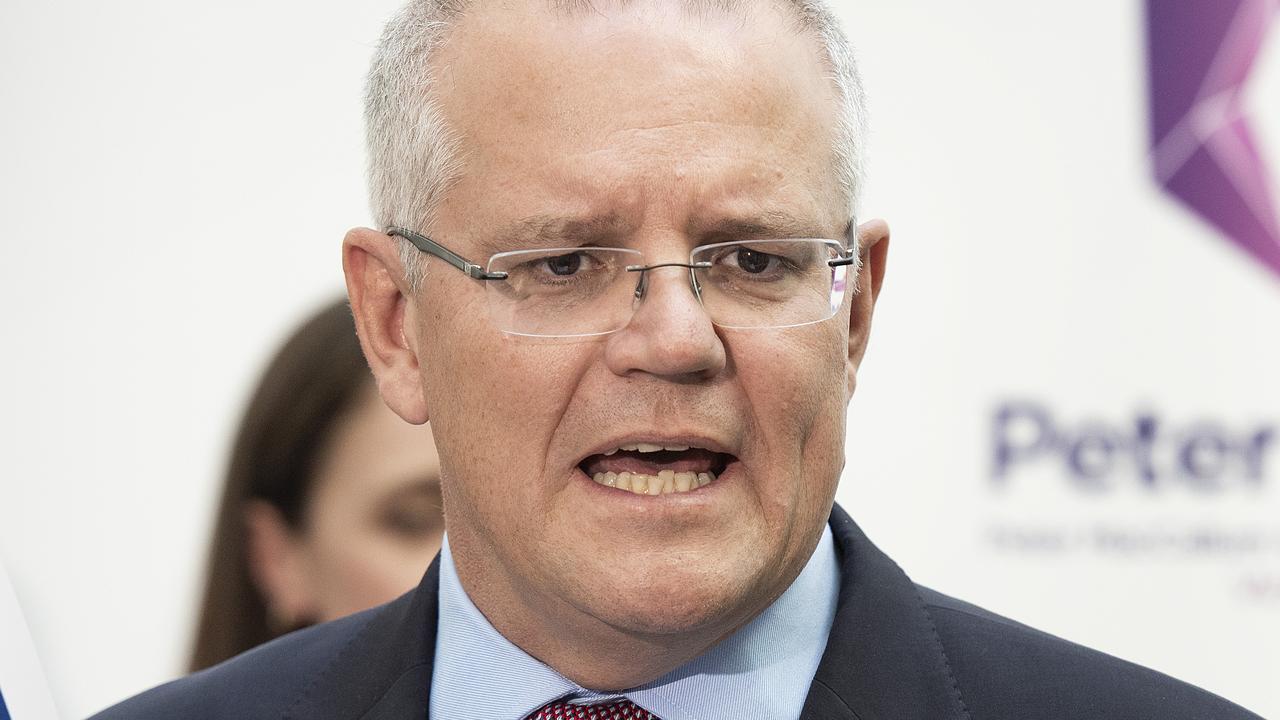Malcolm Turnbull, Coalition hit back ahead of May budget
Malcolm Turnbull may have lost his 31st straight Newspoll but he and the Coalition have made significant gains.

Malcolm Turnbull has returned the Coalition to its strongest electoral position since September 2016, having eroded Labor’s commanding lead over the past 18 months to just two points as the government heads to the critical May budget.
The Prime Minister’s personal ratings have also rebounded following renewed questions over his leadership and suggestions that he could be vulnerable to a challenge in the second half of the year.
The latest Newspoll, conducted exclusively for The Australian, shows the Coalition reducing Labor’s lead to 51-49 on a two-party-preferred split.
While confirming 31 losing Newspolls for the Coalition under Mr Turnbull, who now exceeds the benchmark of leadership failure he set for Tony Abbott, it is the best result since the immediate post-2016 election period and follows the Prime Minister’s declaration two weeks ago that he believed he could still lead the Coalition to victory at the next election.
The latest poll was conducted in the wake of the banking royal commission revelations last week as the government sought to cauterise any potential political damage by announcing unprecedented criminal and civil penalties for banks, their directors and employees following confessions by executives of widespread banking malpractice and deception.
Mr Turnbull, who is today in Germany ahead of Anzac Day commemorations in France and has been overseas since last Monday night, has also enjoyed a significant bounce in his personal standing, which tanked during the Barnaby Joyce love-child scandal.
A four-point rise in satisfaction levels to 36 per cent has restored perceptions of his performance to the levels recorded after the summer break during which the Prime Minister was also largely absent from the public spotlight.
The personal boost for Mr Turnbull comes despite the first week of the current polling cycle being dominated by intense scrutiny of his leadership after he levelled the benchmark he set for Mr Abbott’s failure by reaching 30 lost Newspolls on April 8.
A messy public dispute about proposals to reduce the annual cap for migration was also considered not to have played well for the government, with Mr Turnbull and Home Affairs Minister Peter Dutton appearing to be at odds over the issue.
But the two-week period also covered a significant government pre-budget infrastructure push into the eastern capital cities and northern regional areas. In the past fortnight Mr Turnbull has announced a $5 billion city rail link to Melbourne’s Tullamarine airport as well as $1bn for the M1 motorway link between Brisbane and the Gold Coast, while money was also pledged for projects in north Queensland.
Opposition Leader Bill Shorten has also been camped in regional Queensland for much of the past week after having also made a commitment to help fund the $2.2bn Cross River Rail project in Brisbane.
With the Coalition having trailed Labor on an average 53-47 split for the past year, the results of this latest poll are likely to restore stability to Mr Turnbull’s leadership in the lead-up to the May 8 budget — the last before the next election.
It is the best result recorded for the Coalition in two-party-preferred terms since a 50-50 split in the Newspoll of September 11, 2016, just weeks after the election and before the start of a collapse in support for the Turnbull government.
The latest poll of 2068 voters nationally, conducted between April 19 and yesterday, suggests the Coalition would lose only six seats, assuming a uniform national swing, if the next election were to be held now.
The previous two-party-preferred vote of 53-47 in favour of Labor would, on paper, deliver a crushing defeat with the loss of between 14 and 21 seats.
Scrutiny of the latest results, however, reveals that the Coalition is still struggling to regain core support among voters.
The two-party-preferred gains have come from changes to second-preference intentions, with the primary vote for both major parties remaining unchanged — a historically low 38 per cent for the Coalition and 37 per cent for Labor.
While there was no movement for One Nation, which stayed at 7 per cent, the Greens, who have come under increasing scrutiny since a poor result in the Batman by-election in Melbourne in March, dropped back a point to 9 per cent.
Others — comprising independents such as Cory Bernardi’s Australian Conservatives and the populist Nick Xenophon Team — gained a point to 9 per cent.
Mr Turnbull has also maintained a slim lead over Mr Shorten as the preferred prime minister with only a three-point margin separating the two leaders — a one-point improvement on the past poll result. Mr Turnbull remained on 38 per cent, which is comparatively low, while Mr Shorten dropped back a point to 35 per cent.
The Labor leader, however, also enjoyed a bump in his personal satisfaction ratings with a two-point rise to 34 per cent — two points behind Mr Turnbull.
In September 2015, Mr Turnbull cited 30 losing Newspolls under Mr Abbott’s leadership as a factor in the leadership spill.
He claimed it was an indication that the electorate had made its mind up about his leadership.
Mr Turnbull has refused to acknowledge that the same benchmark should be used to judge his own leadership, with the Prime Minister claiming he had delivered on the core issues of economic leadership and management, and cabinet process.







